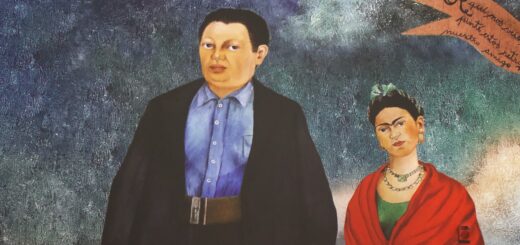Prison Words
The dataset used for exploration is a digital version of the admission records for prisoners’ number 20 through 1124 of the Eastern State Penitentiary. The admission book is from the Eastern District of Pennsylvania Records, American Philosophical Society. The digital source of the data is listed in the Magazine of Early American Datasets (MEAD), a source for and by historians of early North America. The specific citation is listed here. Here is the access to the complete dataset of Admission Records Book A.
The admission records book covers the years from 1830 to 1839. The dataset includes a variety of categories such as name, crime and race/ethnicity and includes men and women. The original collector of this data is assumed to be prison guards of the Eastern State Penitentiary, but no specifics are provided. The admission book’s primary purpose appears to chronicle the entry and exit of the prisoners, but contains information about the prisoner’s trade skill, literacy ability and noted impressions of the prisoner.
My subset of the dataset covers specifically the description and discharge notes of prisoners during that timeframe. My choice of graphic is a word cloud as I’m interested in the words used by the observer and their perspective.
My first word cloud is the ‘Description Notes’, assumingly taken upon prison entry and/or during the prisoners’ stay for their sentence. The count of the word in the category is documented as (number) or the reader can select the word in the graph and view more specifics.
Given the size of the word in the cloud, ‘Religion’ is documented at least (120) times. Related words are ‘Religious’ (76) and God (54). Of equal measure is Catholic (25) and salvation (24).
Taking in the Description cloud in its entirety, it’s like a morality in poetic form. Sin (41), guilt (36) and soul (39) are weighty words that, in context of religion, may infer that prison can be the catalyst for spiritual change. Or that the person is too far gone – hardened (31) is a common word used for the unrepentant.
I selected eleven records based on the most common word, Religion. Just on this small selection it appears that the intake was to assess the person’s willingness to either embrace or convert to religion as the pathway to be reformed into a better citizen. Religion, in the intake worker’s view, did not include the doctrine of Catholicism or Judaism.
- Possesses some enlightened views of religion believe that the heart must be renewed by the Holy Spirit. Yet indifferent to his own salvation and decidedly a catholic. (Prisoner 699, from Ireland, crime of larceny).
- J. Catholic. Very bad temper exceedingly irritated as soon as he saw me approach him to converse on the subject of religion. Said he had his bible to direct him, interprets for himself and wishes no one to interfere with him, admonished him gently not to judge himself unworthy of eternal life and left him a little softened. (Prisoner 607, from Ireland, crime of larceny)
- An Irish catholic, from the scriptures has obtained a knowledge of true religion and rejects the superstitions of popery. Knows that without regeneration he cannot enter the kingdom of heaven, convinced partially of condition, is not converted, but will strive [[etc]] (Prisoner 877, from Ireland, crime of larceny)
- Seems hopelessly under the influence of Catholic Superstition. Is visited by the Priest. (Prisoner 882, from Ireland, crime of Riot & Assault and battery with intent to kill)
- A Jew, could not speak English well enough to converse upon religion, assented to everything addressed to him but without feeling anything. (Prisoner 869, from Germany, conspiracy to defraud)
The intake worker – either the same person or another guard – was also very critical of those who did not want to convert or those that didn’t demonstrate enough that they were sincere in their religious conversion. Ignorant (36) appears to be used in the context of lacking knowledge (about religion).
- Professes to have experienced religion in prison. Is ignorant altogether of its nature and power (Prisoner 696, from New York, crime of larceny)
- Indifferent to religion. Thinks he has a good a hope as many others and is not concerned for future. Took a gun. Stupefied by rum. Don’t believe in future retribution, hardened. (Prisoner 1068, from Delaware, crime of larceny)
- Very ignorant and seems to have no sense of the evil of his crime, indifferent to religion and appears to have had no instruction whatever in relation to his soul. (Prisoner 1064, from Philadelphia, crime of larceny)
- Very ignorant and apparently stupid, great insensibility to the interests of the soul. (Prisoner 726, from England, crime of larceny).
- Has very slight sense of the guilt of crime. No sense of religion. Quite careless and hopeless. Sold himself to the Devil. (Prisoner 1102, from Philadelphia, crime of burglary).
- Very mild and pleasant in behavior but not disposed to converse upon religion. Destroying himself. (Prisoner 270, crime of burglary).
My second word cloud was on the Discharge notes, based on my curiosity on whether the targeted effort to convert the prisoners to religion have any bearing on their release from prison. Obviously, the word ‘Discharged’ – in upper case (404) and lower case (22) – appeared the most overall. ‘Time’ (254) has a connection with the phrase ‘Time out’, as in time served – the prisoner served the entire sentence charge or was partially pardoned (31) for the remainder of the sentence.
Specific to the eleven cases I highlighted from the Description notes, the outcome of the majority of the eleven prisoners – seven – were discharged and/or time out without additional commentary. Of the remaining four prisoners who were discharged had the following added comments – were:
- Prisoner 607 – the Catholic – ‘Hopelessly hardened’.
- Prisoner 696 – noted as ‘ignorant’ – ‘said he was going to Baltimore to search out his mother- from thence to sea’.
- Prisoner 1068 – noted as ‘indifferent to religion’ – was discharged as ‘no hope’ (8).
- Prisoner 1102, who sold himself to the Devil – was discharged as having a ‘very favorable appearance of reform (38)’.
Reviewing the word ‘Demented’ (7), which could mean ‘suffering from dementia’ or given the religious tone of the first word cloud that the person might be evil, I checked the Description notes to see if these prisoners were attempted to be converted to religion. Only one prisoner –
number 995, from England, crime of Murder – documented to think of themselves as a ‘good Christian’ but was discharged to ‘almshouses’, also known as poor houses in the 1800s.
Finally, of the five Discharge notes that contain ‘Religion’, two prisoners were considered either insincere or were doubted about their profession of faith. Of the remaining three, two were part of the Methodist church – apparently the one of the doctrines to be considered a real religion.
In conclusion, I can’t tell if the focus on religion at intake and during the prisoner’s stay would have provided favorable treatment or early release but it’s not clear from these findings. Without knowing who the documenter(s) were and what their role was in the prison, I can only speculate – and poorly at that – of what their intentions were about religion, punishment and salvation. What it does make me wonder is if this emphasis on religion is present today in our penal system and what is its impact on the prisoners and their guards.





